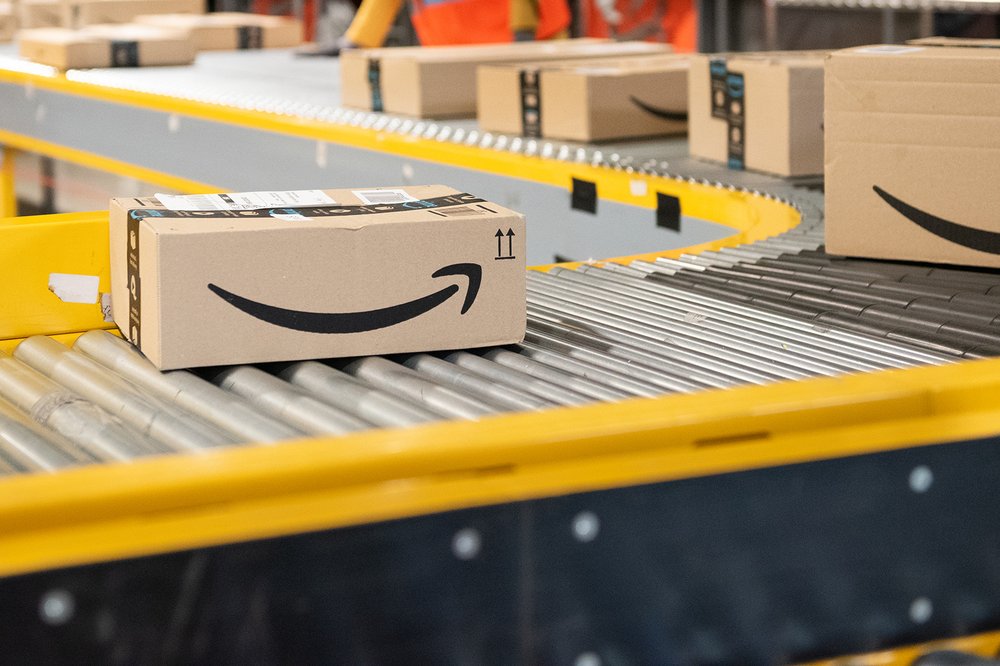NJ Amazon worker’s Prime Day death wasn’t from workplace conditions, feds say
Jan. 20, 2023, 12:15 p.m.
OSHA concluded its investigation of Rafael Mota Frias' July death at the Carteret facility, known as EWR9.

A federal investigation into the death of an Amazon warehouse worker last summer has cleared the retail giant of any health or safety violations connected to the incident.
The Occupational Safety and Health Administration concluded its probe into the fatality and issued no citations to Amazon. OSHA spokeswoman Leni Fortson said the employee’s death “was not related to workplace conditions.”
Rafael Mota Frias died in July at the fulfillment center in Carteret during the retail giant’s two-day “Prime Day” promotion. At the time, Amazon officials said their own internal investigation found the incident was related to a medical condition that he hadn’t told supervisors about, and that the company was conducting its own investigation into the fatality.
“This was a tragic event and our thoughts continue to be with his loved ones as we work to support them and our team,” Amazon spokeswoman Maureen Lynch Vogel said in an emailed statement.
Over the summer, multiple media reports cited unnamed Amazon workers describing sweltering conditions at the Carteret site, which were reaffirmed to Gothamist by Jordan Flowers, one of the co-founders of the Amazon Labor Union. The ALU does not represent the Carteret facility, but Flowers said it had been in touch with workers there. Soon after, Amazon installed new air conditioning systems at the Carteret site, but wouldn’t say if that work was prompted by those concerns.
Mota Frias' death was followed by two other New Jersey Amazon worker deaths within two weeks last summer. In late July, a worker at the Robbinsville Amazon facility fell off a 3 foot ladder, struck his head and died three days later. The following week, another worker at the Monroe Township facility died.
Fortson said those two incidents remain under investigation. The agency has up to six months to release its findings.
The trio of deaths this summer prompted concern from labor groups that called for more scrutiny of warehouse labor practices as Amazon continues to expand its footprint in the state. A New Jersey Policy Perspective analysis in early 2022 found Amazon employed just 5,500 workers in the state five years earlier — but that number had grown to 49,000 by the time of the report.
“The injuries at Amazon’s warehouse facilities are a systemic issue and bigger than any one investigation. Federal data shows that Amazon is an outlier when it comes to workplace injuries and cannot be trusted to keep their employees safe,” said Nicole Rodriguez, president of New Jersey Policy Perspective. “This is a well-documented problem and the federal government has every reason to continue their investigations and hold Amazon accountable.”
A report by the think tank last year showed injury rates among state Amazon workers increased by 54.3% from 2020 to 2021, compared to a nationwide increase of 19.6%. There were no recorded worker deaths at New Jersey’s warehouses in 2019, 2020 and 2021.
OSHA, however, did issue citations to three Amazon facilities this week in New Windsor, New York; Waukegan, Illinois; and Deltona, Florida, alleging it exposed workers to safety hazards that could put them at high risk of lower back injuries or other musculoskeletal disorders.
The U.S. Attorney’s Office for the Southern District of New York opened an investigation into workplace safety issues at Amazon last summer, referring several warehouses to OSHA for inspections, which remain ongoing. The office is also looking into whether Amazon fraudulently misrepresented the number of employee injuries and its safety record. Officials said members of the public can still report warehouse safety issues online.
Garrett O’Connor, director of worker organizing and policy for immigrant advocacy and support group Make the Road New Jersey, said OSHA’s decision not to issue citations following Mota Frias' death did not clear Amazon of responsibility. He cited the ongoing investigation by the U.S. Attorney’s Office.
“It is entirely clear that Amazon’s production quotas have made its warehouses particularly dangerous for workers, even in comparison to its competitors in an already dangerous industry,” O’Connor said in a statement. “If anything, the result of this case points to a need for deeper and broader authority for OSHA to hold Amazon and other employers accountable for conditions not currently within its enforcement purview.”